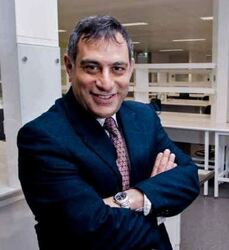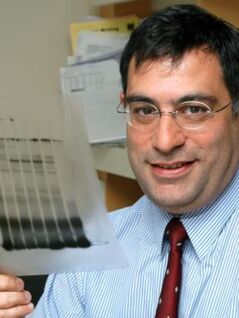Levon Khachigian investigated after concerns raised about whether his research was fabricated
UNSW skin cancer researcher Levon Khachigian hit with string of retractions, says the ABC News at https://www.abc.net.au/news/2019-10-17/unsw-skin-cancer-levon-khachigian-allegations-and-retractions/11585768
|
|
Professor Khachigian has been a big earner, bringing in $23 million in funding to the University of New South Wales (UNSW) over his thirty year career. That would be a significant conflict of interest for the university to investigate concerns that Professor Khachigan had allegedly misrepresented his research findings in his published journal articles. His research claims have been under intense international scrutiny. Now, six research papers he co-authored have been withdrawn from publication due to concerns over missing or manipulated data. Unfortunately investigations into the veracity of his research have been kept secret and six year on the University of New South Wales continues to find any concerns 'unsubstantiated'. |
Lawyer Elizabeth Lacey will present a brief of evidence to the Independent Commission Against Corruption (ICAC), urging it to investigate Professor Khachigian and UNSW's handling of the case. "Complainants in this matter have been trying to raise concerns about [Professor Khachigian's research], and each time they meet the hurdles of the university saying 'we've investigated ourselves and we're fine'," she said.
Over the last decade, Professor Khachigian and his UNSW lab have been stalked by allegations of fabrication of data and falsifying images, with multiple investigations failing to silence Ying Morgan and other whistleblowers. The ABC first revealed allegations of scientific misconduct in 2013, and in 2016 reported concerns about how investigations into his research had been conducted.
David Vaux is an outspoken campaigner for honesty in scientific research. When Professor Vaux first came across ... errors in Professor Khachigian's work ... he wrote to him. It was the first of more than a dozen alleged errors Professor Vaux brought to the attention of journals, officials at UNSW and funding bodies.
Nine cancer patients were injected at the Royal Prince Alfred Hospital between 2010 and 2011 with a chemical Dz13 based on research published by Professor Khachigian, which he has now withdrawn after whistleblower's pointed out Professor Khachigian's 'before' and 'after' photographs were in fact the same photograph just blown up to make look like Dz13 had a benefit.
Peter Brooks from the University of Melbourne investigated the matter for UNSW. "The conclusions were that there had been some misdemeanours, but we thought there were extenuating circumstances and therefore no research misconduct was found," he said, "it appears the original data has now disappeared".
Bob Williamson wrote to the national research funding watchdog in 2016 concerned about the process the university had put in place to investigate its own. "We were instructed that we could only find that Professor Khachigian had committed 'misconduct', (which we did, on a number of specific points), but not 'research misconduct', because we could not aggregate the acts and draw what was, for us, a conclusion."

